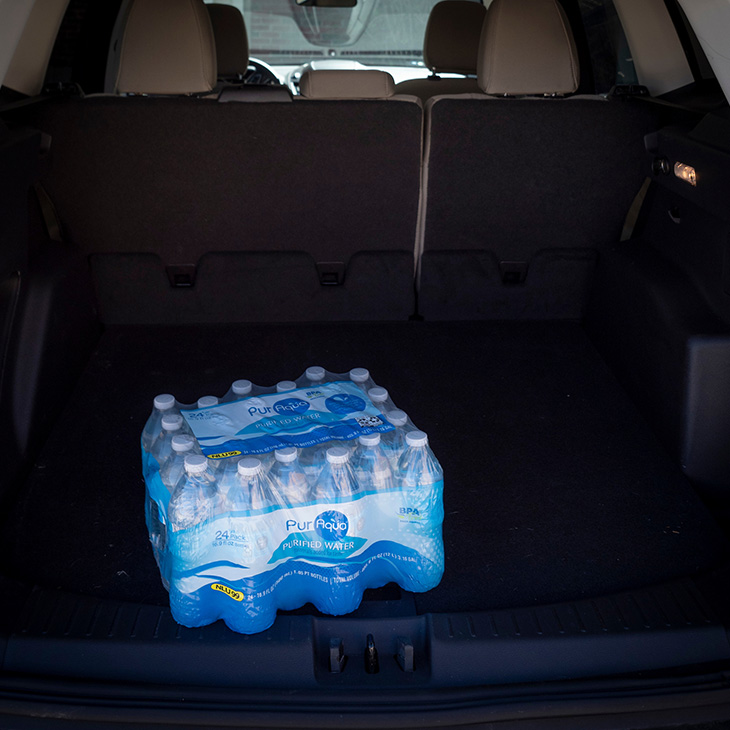
Safe water, food and medicine important after wildfire
Friday, April 3, 2020
After a wildfire, the safety of water and food, as well as medications, is at the top of the priority list for affected families.
In general, if there is any doubt about the safety of food and water in your home, throw it out, said Barbara Brown, Oklahoma State University Extension food specialist.
“Any food and beverages exposed to heat, smoke or soot should be discarded,” Brown said.
In an emergency, commercially bottled water is the safest and most reliable option. It also has an indefinite shelf life. For those who stock up, there is no rush to use it quickly.
Water believed to be contaminated should not be used for drinking or making ice; preparing food or baby formula; bathing, washing hands or brushing teeth; or cleaning dishes.
Fresh food, any open containers and stored raw foods such fresh fruits and vegetables, should be discarded if they came in contact with fumes, water or chemicals. Likewise, throw out exposed staples such as flour, sugar, spices, seasonings and extracts, as well as items stored in containers with peel-off tops; screw-topped jars; cardboard boxes; or wrapped in foil, plastic, cellophane or cloth.
Brown said consumers should dispose of dented, bulging, rusted or charred canned goods, or canned items that were exposed to extreme heat.
Commercially canned goods and cookware exposed to chemicals can be decontaminated.
Wash in a strong detergent solution. Then dip in a bleach solution (1 tablespoon of unscented, liquid chlorine bleach per gallon of water) for 15 minutes.
“Keep in mind, refrigerators and freezers may not have remained airtight during the fire. If a food item smells bad or tastes off, even after it has been cooked, just throw it away,” Brown said. “Frozen foods that still have ice crystals might be salvageable, but thawed items shouldn’t be refrozen,” Brown said.
In the event of a power outage, discard all meats, seafood, milk, soft cheeses, eggs, prepared foods and cookie dough that spend more than two hours at a temperature above 40 degrees Fahrenheit.
Because heat can affect the potency of some medications, any medicines exposed to heat, smoke and soot should be thrown away or a medical professional should be consulted before using potentially compromised prescription or over-the-counter medications.
For more information about food safety after a wildfire, contact the nearest county OSU Extension office.
MEDIA CONTACT: Trisha Gedon | Agricultural Communications Services | 405-744-3625 | trisha.gedon@okstate.edu
